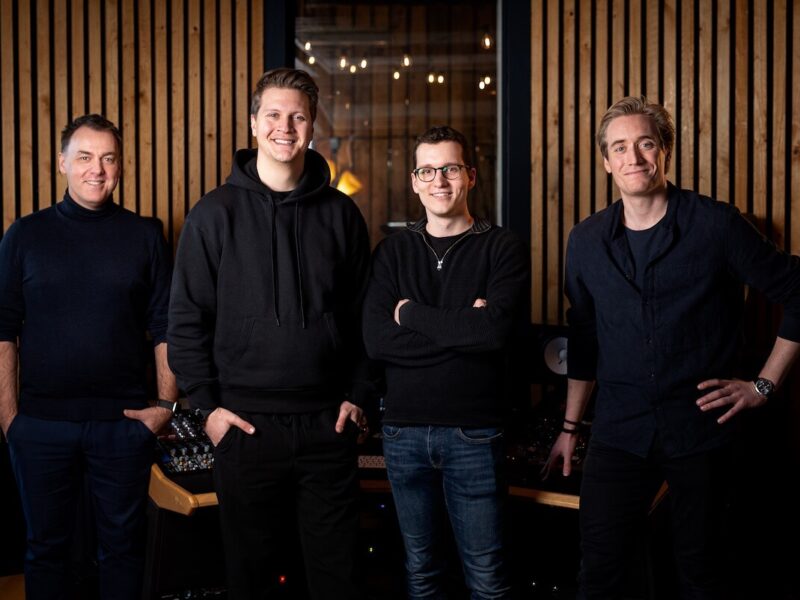
Summer 2023
Music mastering through AI
Alumnus Simon Hestermann (MSc Advanced Computing, 2021) is making waves in the music industry with his renowned music AI startup...
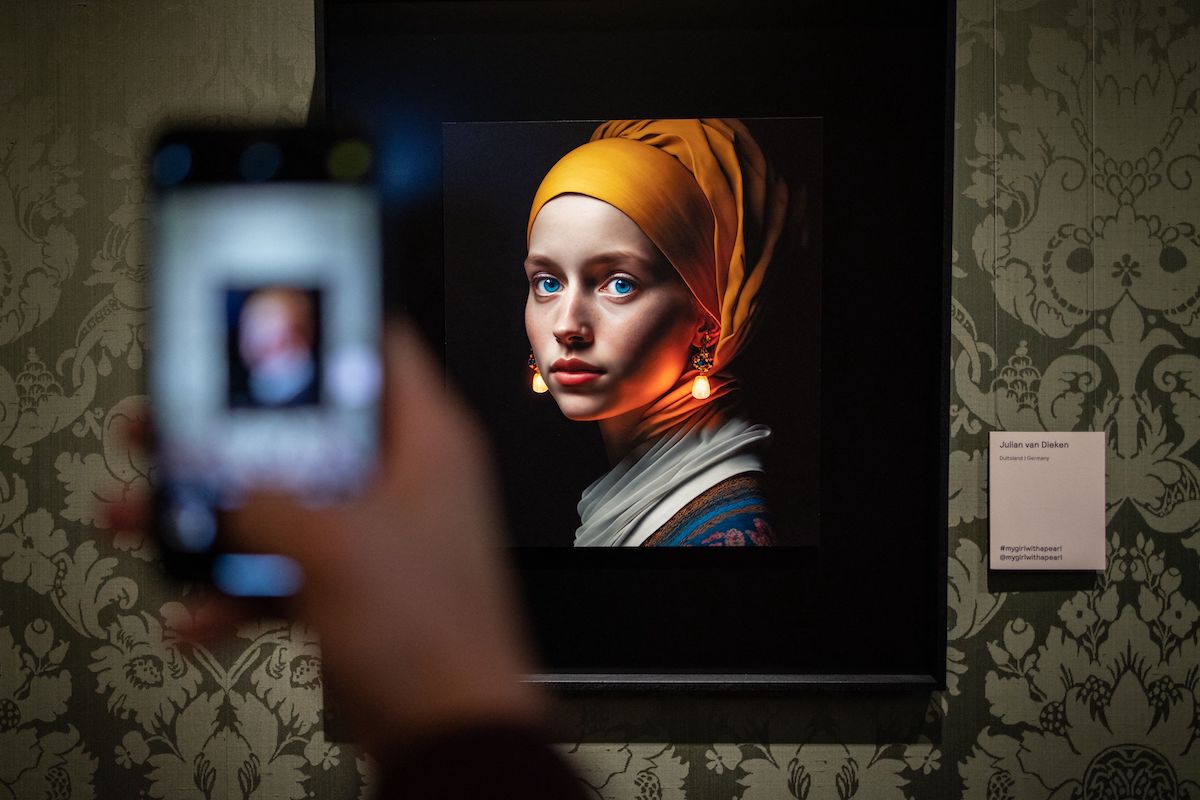
INSIDE KING’S
Read time: 6 mins
Image caption: An image designed with artificial intelligence by Berlin-based digital creator Julian van Dieken
Like it or not, artificial intelligence (AI) is here, and it’s here to stay. From headline-grabbing driverless cars, Bing search and ChatGPT to life-saving computer-assisted surgery, wearable technology and deep-sea or off-planet exploration, the era of human-robot collaboration is now science fact, not science fiction.
While Alan Turing wondered if machines could think in the 1950s, AI is now offering society many useable applications. We want to be at the forefront of developments, across all disciplines. That’s why we set up the King’s Institute for Artificial Intelligence – to create a coherent and visible presence for AI at King’s.
Unveiled in 2022, the King’s Institute for Artificial Intelligence represents a commitment to supporting a sustained AI agenda. It is a meeting point for the varied and growing activity, interest and expertise relating to AI across disciplines at the university – not exclusively in STEM subjects. Driving scientific and technological innovation is a large part of our work, but so too is unlocking the potential of assimilating AI into everyday processes, such as assisting routine surgery or streamlining outdated business systems – and addressing ethical challenges around human-machine interaction.
In addition to core technical advances in AI in computing, students and academics institution-wide are contributing to the conversation in areas as diverse as arts and humanities, social science and philosophy, medicine and dentistry, law and economics. To help build better internal and external collaborations, one of the King’s Institute for Artificial Intelligence’s immediate missions has been mapping the breadth and depth of this across the university’s nine academic faculties.
Professor Michael Luck, Institute Director, says: ‘AI is having, and will continue to have, a profound impact on the range and diversity of what we do at King’s. The applications are almost unbounded and have the potential to greatly change what we do in art and literature just as much as in medicine and science. Even at a technical level, AI is a field that draws not just on computer science and engineering, but also on philosophy, psychology, economics and many other areas. There are massive potential benefits for many King’s research areas.’
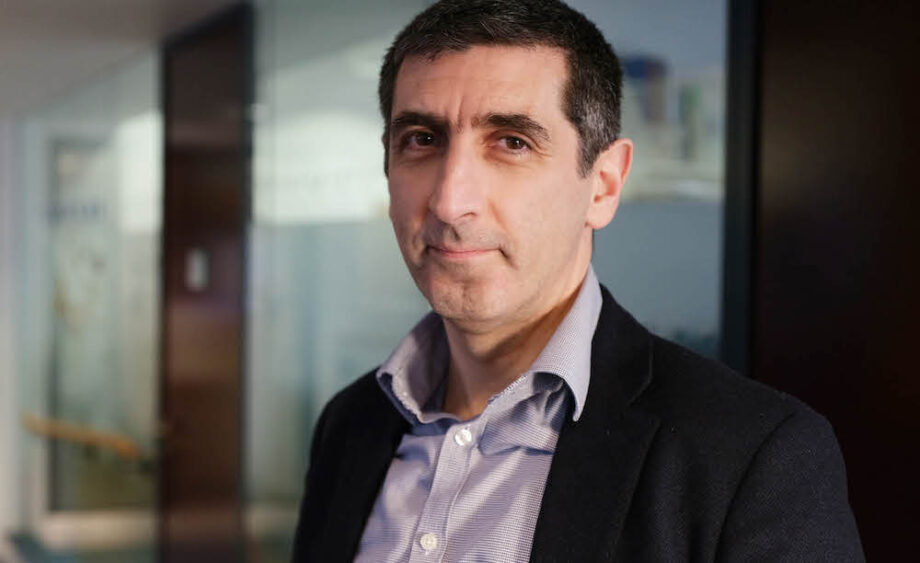
Professor Michael Luck
Alongside its trailblazing role in the practical applications of AI, King’s is already addressing possible implications of the technology and working on systems to ensure AI truly complements human capabilities and is not misunderstood or misused. Professor Luck explains: ‘Our work on AI, here in the UK and at King’s, is leading the world. While there remain some real challenges concerning the impact of AI on society and its ethical implications, I am optimistic about the future and the positive role AI can play in it.’
King’s is well placed to contribute to national priorities in this area, leading the UKRI Centre for Doctoral Training in Safe and Trusted Artificial Intelligence with Dr Elizabeth Black, Reader in Artificial Intelligence, as its Director. On the safety of AI, Dr Black adds: ‘It’s changing the way we live and we need to make sure these changes are positive. We have to make sure that the AI we put out in the world is safe and behaves in the way we intend it to, otherwise it may very well end up causing more harm than good.’
This vital hub is spearheading techniques for a new generation of scientists and engineers to become experts in ensuring confidence in AI systems, with partners ranging from the British Library and the National Archives to BT and Royal Mail, and from Amazon and Ocado to IBM and Thales.
Our work on AI, here in the UK and at King’s, is leading the world. While there remain some real challenges concerning the impact of AI on society and its ethical implications, I am optimistic about the future and the positive role AI can play
in it.Professor Michael Luck
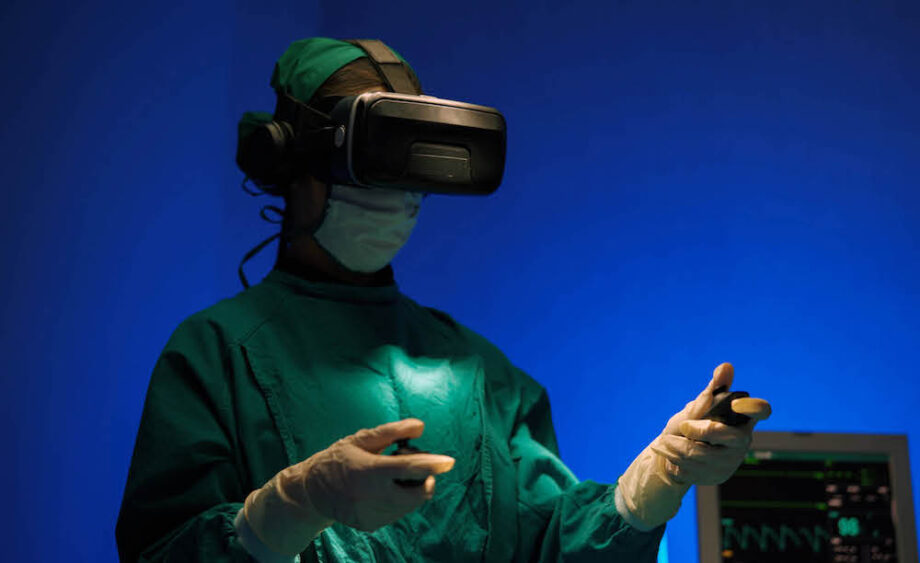
Surgeons perform operation on patient, assisted by AI
To showcase the research and development being done in, around and with AI across faculties and beyond campus walls, the King’s Institute for Artificial Intelligence teamed up with King’s Culture last month to offer alumni, students, staff and the general public a glimpse behind the curtain.
The exhibition Bringing the Human to the Artificial invited visitors to take a sneak peek into our community’s work, exploring the cutting-edge developments we’re making in AI and engaging with the technology – the challenges as well as the benefits, which have the potential to impact significantly on both individuals, industry and society. Human involvement is crucial in designing, developing and deploying AI systems, and this exhibition is your chance to get involved and find out more about what we do.
Bringing the Human to the Artificial highlighted research and development in artificial intelligence across disciplines and its potential uses in our own lives.
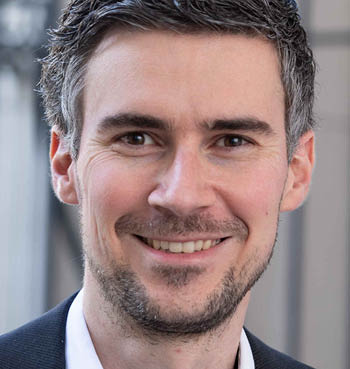 Dr Stefan Bernritter – King’s Business School
Dr Stefan Bernritter – King’s Business SchoolDr Bernritter’s project ‘Designed by AI’ investigates the implications of using AI in product development. Are AI-designed products preferred to those created by humans?
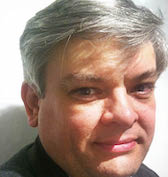 Professor Richard Cook – Faculty of Dentistry, Oral & Craniofacial Sciences
Professor Richard Cook – Faculty of Dentistry, Oral & Craniofacial SciencesProfessor Cook’s team developed ‘Micro-vascular Diagnostic Imaging’, an AI technology that determines possibly cancerous oral lesions, potentially avoiding invasive biopsy, allowing early treatment and improving patient outcomes.
 Dr Yali Du – Faculty of Natural, Mathematical & Engineering Sciences
Dr Yali Du – Faculty of Natural, Mathematical & Engineering SciencesDr Du’s ‘Human-in-the-loop Reinforcement Learning’ improves training for AI agents to enable them to better solve complex decision-making problems, and making them highly adaptive, especially for robotic control and games.
 Cari Hyde-Vaamonde – The Dickson Poon School of Law and The Alan Turing Institute
Cari Hyde-Vaamonde – The Dickson Poon School of Law and The Alan Turing InstituteCari’s research, ‘Judged by the Machines?’, addresses public confidence in human-digital interaction within the legal system – could we trust AI to decide legal cases?
The exhibition kickstarted a season of events, including the five-day King’s Festival of Artificial Intelligence which ran in May and a new exhibition at Science Gallery London, AI: Who’s Looking After Me?, which runs until January 2024, exploring the way we share our world with AI and its ethical implications.
Beatrice Pembroke, Executive Director of King’s Culture, thinks this is a great introduction for non-specialist audiences to the university’s work on this fast-evolving subject: ‘From health to retail to government, artificial intelligence is changing every aspect of our lives, provoking excitement, fear and fundamental questions about what makes us human.’
We hope you’ll join us to explore the latest applications and uses for AI from our thought-leaders in the field, dispel misconceptions and probe the moral consequences of a subject that affects
us all.Beatrice Pembroke
The King’s Institute for Artificial Intelligence might only be in its second full academic year of operation, but it is already driving forward our vision for AI at King’s and helping to lead the national AI agenda, engaging with both policy-makers and the public.
We are not just collaborating on state-of-the-art scientific and technological developments and contributing to the most up-to-the-minute legal, societal and ethical discussions – here at King’s, with help from the King’s Institute for Artificial Intelligence, we are setting them in motion.
Find out more about what’s going on at the King’s Institute for Artificial Intelligence and get on board with events and activities.
Follow the Institute on Twitter @aiatkings
Check out the website kcl.ac.uk/ai
Sign up for regular round-ups by emailing ai-institute@kcl.ac.uk

Alumnus Simon Hestermann (MSc Advanced Computing, 2021) is making waves in the music industry with his renowned music AI startup...
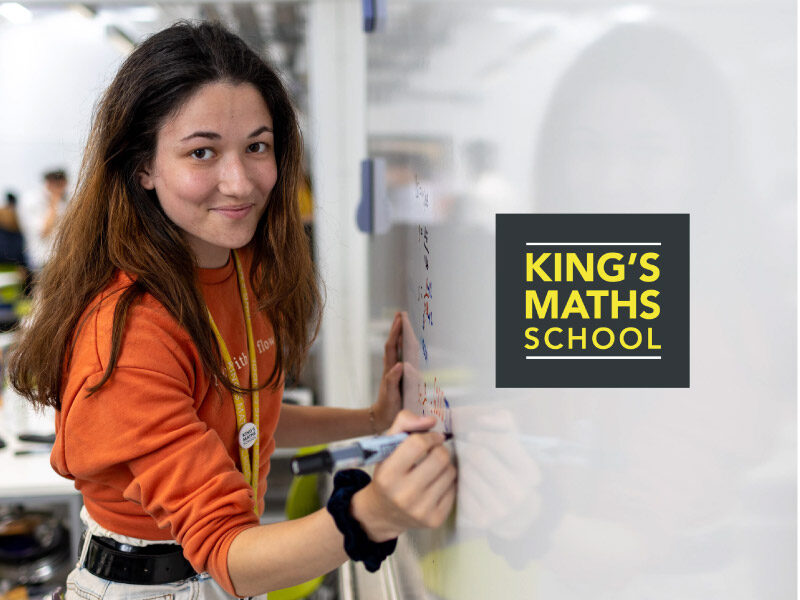
The trailblazing King’s College London Mathematics School provides a perfect example of how King’s is reaching beyond campus and developing...
Maybe a Mastodon account would be a lot more useful than a Twitter account?